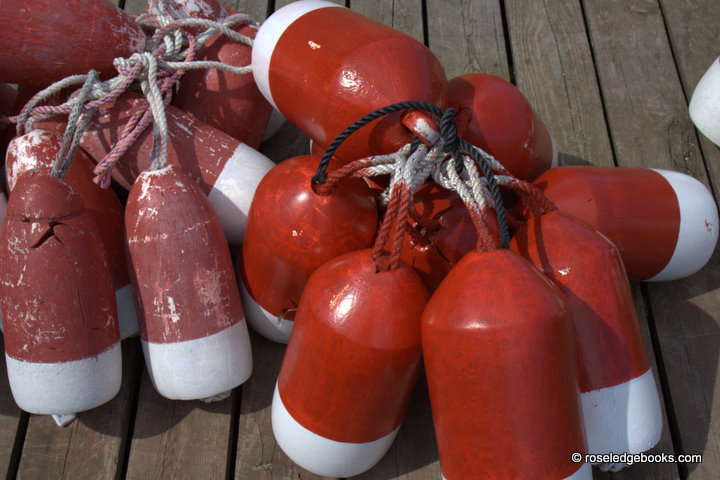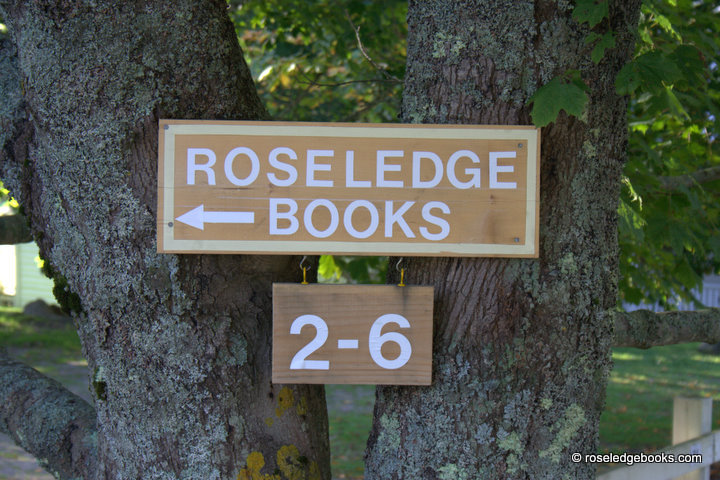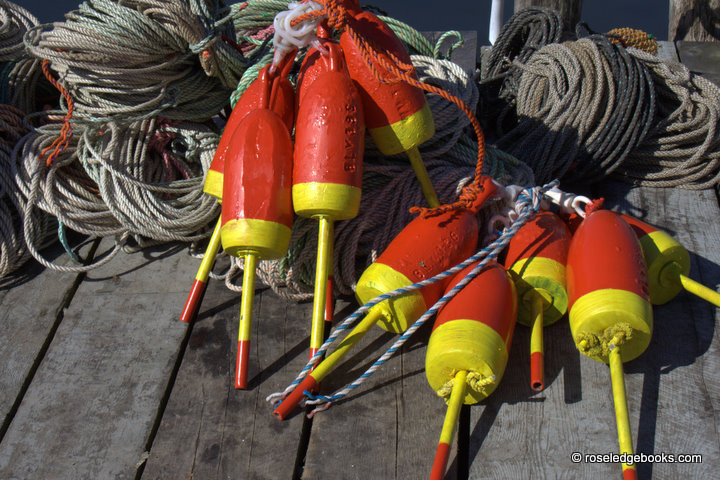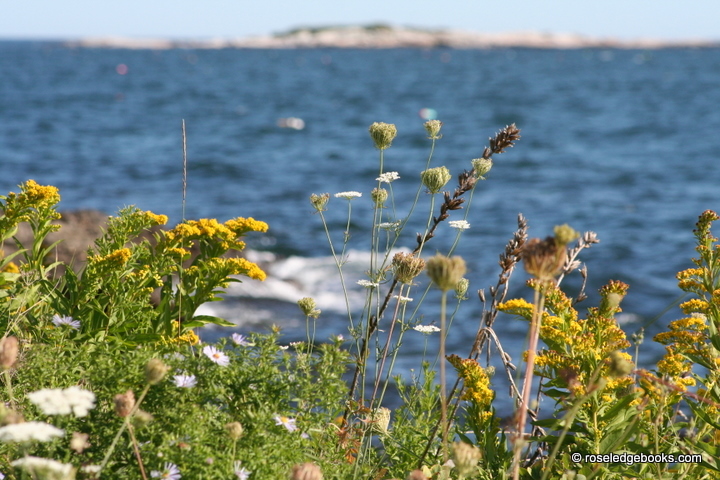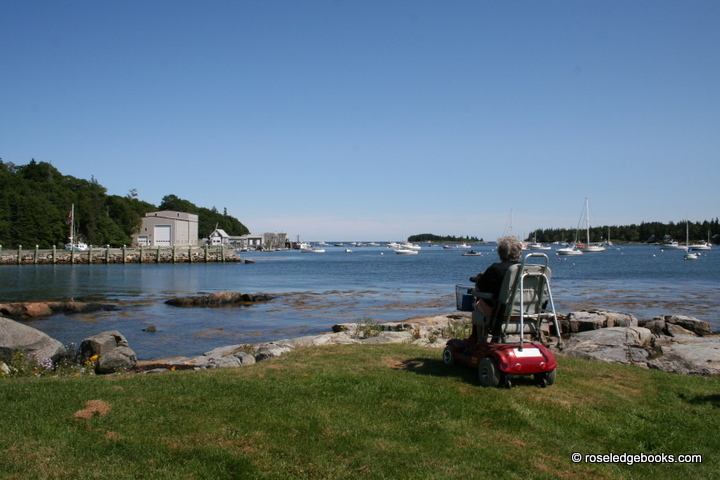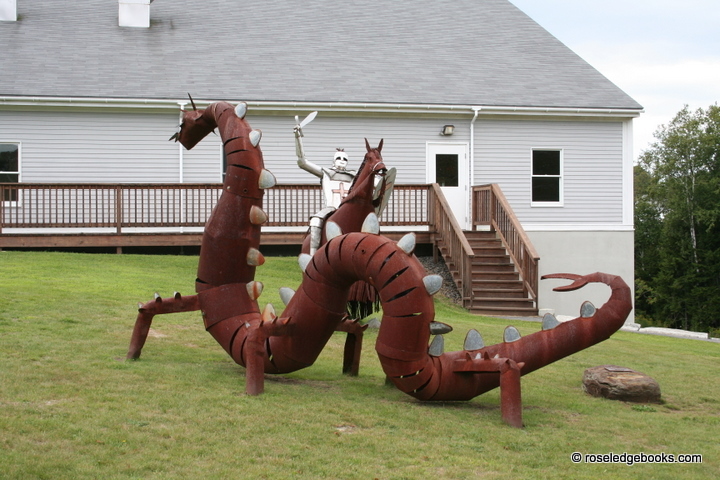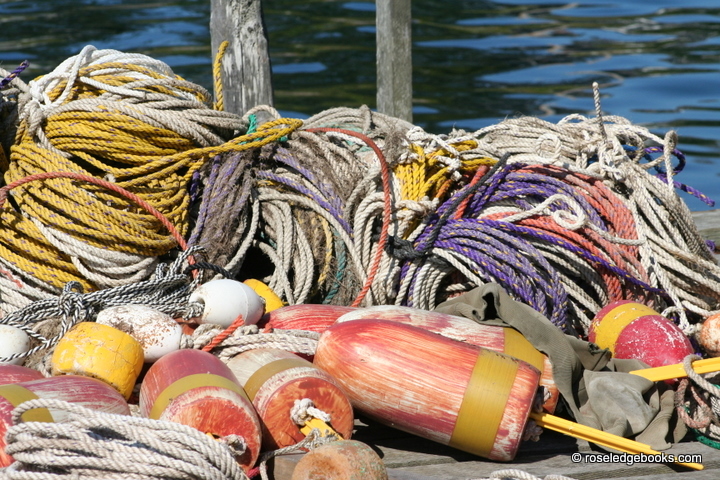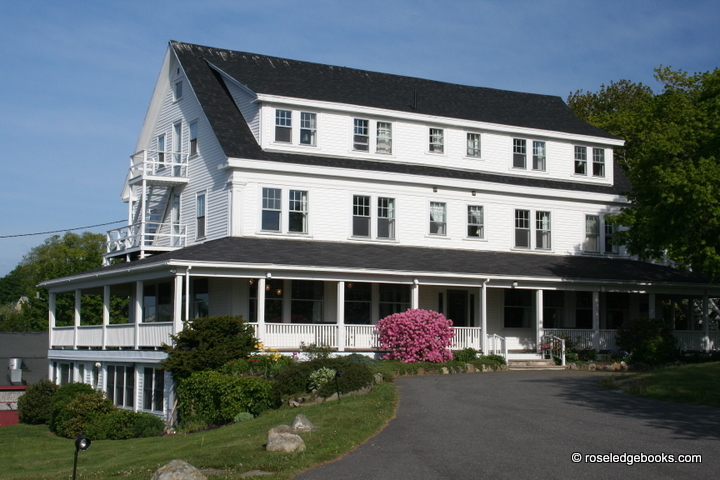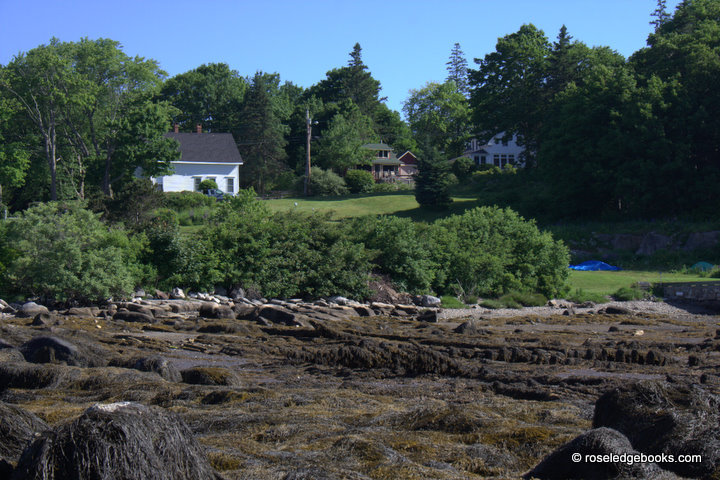The BOOKS and OPEN 2-6 signs are hung and banging against the porch. The bushes are dancing as the afternoon sea breezes blow. (See at least two clicks of the webcam.) New books are unboxed and ordered by size and color to catch your eye as you walk in the door. ROSELEDGE BOOKS IS OPEN! Where are you?
That was written six cloudy-rainy-foggy always humid days ago. (See webcam again.) The question remains: where are you? A little wet never stopped — more likely provoked — a reader to read and thereby to discover a need for just the right book. And ROSELEDGE BOOKS IS OPEN with just the right books.
I’m reading and unexpectedly loving Edmund deWaal’s The Hare With Amber Eyes. The author inherited a collection of 264 netsuke, tiny Japanese carvings, and herein tells their story through their connection to his hugely wealthy family, starting in late 19th C. Paris, then, after 100 pages, in 20th C. Vienna. This is not only a thoughtful family history filled with much about the times I didn’t know — always a good thing — but it is also a first-rate search book. Throughout, he mentions the sources he uses and the sources of those sources, e.g. family letters, photographs, dinner-table stories, boxes of unexplained memorabilia. He uses libraries advantageously, always a good search strategy, this librarian avers. He goes “vagabonding” or traveling to pertinent sites to see them now, imagine them then, and extract the building insights, even when they are harsh. And, wow! does he know how to “read” the thousands of words a picture is worth. Clearly, he attends to and extends his curiosity. What a treat to have picked this up. (Commenter and friend Kathy (see last post) pegged this book and my interest exactly. I am blessed.)
Two favorite books come to mind and soon to Roseledge Books:
Kem Luther’s Cottonwood Roots, a thoughtful family history he wrote after collecting data and visiting the 200 or so years of home sites from Nebraska back in time to New York, which I think of as vagabonding.
Phillip Davis’ The Thread: A Mathematical Yarn, an engaging story of many questions answered by many means and somehow summing to a whole in a life of always learning. (It’s been a long time since I read the book, hence the “abstract” or “impressionistic” review.)
Related Tenants Harbor news: The Happy Clam, to which Roseledge is a (noise) abuttor, agreed to a compromise-later closing time of 10 p.m. for service on its deck. This seems okay to me, as surely the deck people will not be noisier than the yacht club parties of old in tents on the East Wind Inn lawn. When I asked one yachter if his was a “loud is fun” party group, he said they were, but they had limited staying power beyond 9:30, especially as they had to row back to their boats, ready to sail again at dawn. The Real Finds Consignment Shop is full of good “stuff” in the True Hall Realty building just down the hill on Mechanic Street. With Roseledge Books, we two are a right angle of retail glory. And I think the Happy Clam has an ice cream window.
So many reasons for you to be here.


